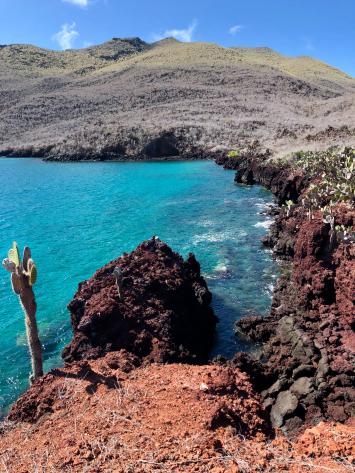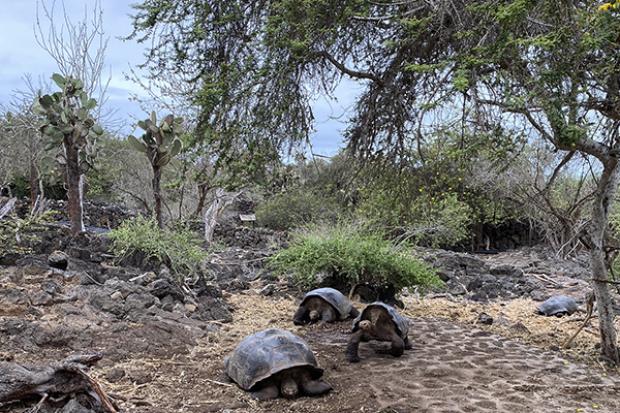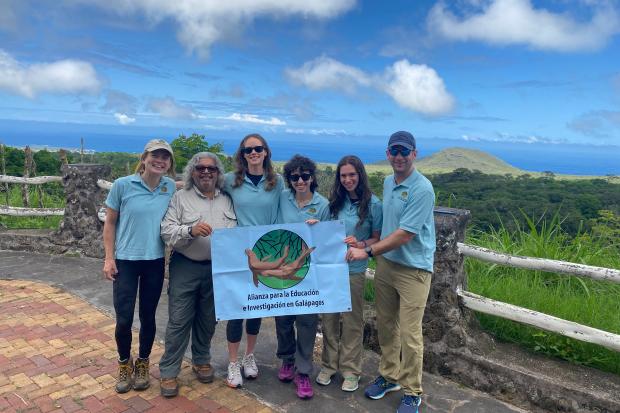Laboratorio para Apreciar La Vida y El Ambiente - Mar (LAVA-Mar)

Globally renowned for its biological, historical, and scientific importance, the Galápagos Archipelago is attractive to tourists and scientists alike. However, the growing local human population is putting stress on the environment, and most residents are only marginally aware of the historical and scientific significance of their home even though it is UNESCO’s first World Heritage site. Over several years, Proyecto LAVA has focused on engaging community members on environmental issues of local interest, while simultaneously collecting data to expand scientific knowledge and point the way towards solutions. Funds from the Initiative expand the reach of this program by helping to train local students to dive, enabling them to regularly collect data in the municipal bay and in less-disturbed areas of the marine reserve.
Within Penn, collaborators in this research community include the departments of Philosophy and Biology; the Schools of Veterinary Medicine, Nursing, and Design; and Perry World House. It also includes collaborators from Virginia Tech, the University of Cincinnati, and Villanova, as well as local experts and professionals.

Related News
"We confirmed that the increasing population of Galápagos can change the behavior of animals, and that’s something to be taken very seriously" - M. Weisberg


